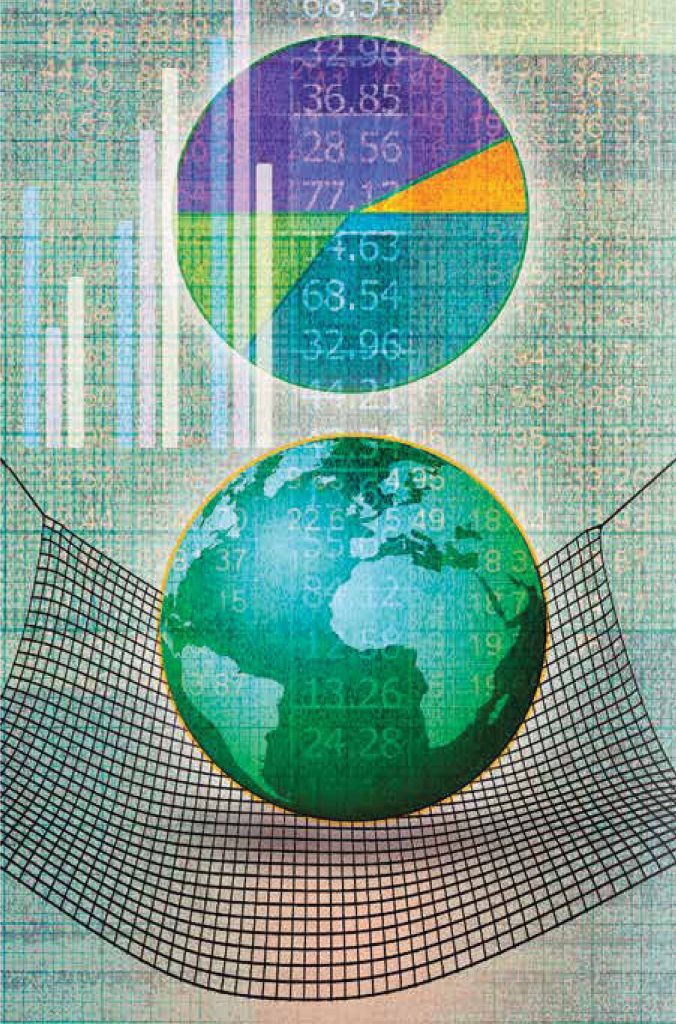With dipping Forex reserves, the IMF now has a long list of reforms for Bangladesh to abide by if it is to look to the IMF for any form of financial help. Strict adherence to these instructions can exert some pressure on the economy.
The International Monetary Fund is a global organisation established in 1944, after the Great Depression in the 1930s. The organisation has 190 member countries who together seek to build a framework for international economic cooperation. The institution comes to the aid of its member countries experiencing balance of payment issues in the form of loans to help the receiver country rebuild their foreign exchange reserves, stabilise their currencies, pay off their import payments and restore strong, economic conditions. The IMF is also famous for identifying risks for member countries and suggesting policies for growth and financial stability.
Just like any lender organisation, the IMF expects timely repayment of loans and often proposes conditions for its reimbursement. Recently, the IMF has come up with a set of economic and financial reforms that it wants Bangladesh to follow. Needless to say, the modifications come ridden with some heavy-duty consequences.
The International Monetary Fund wants more autonomy for the Central Bank, to be able to classify loans as non-performing after 3 months of not paying, and to allow exchange rate and interest rates to be flexible and market-determined, rather than intervening to control them artificially. In addition, the IMF also wants the Bangladesh Bank to revise its methods of calculating its foreign reserves. There’s more. The energy sector of Bangladesh is heavily subsidised by the government and the international organisation wishes for a significant reduction in fuel subsidies, if not completely doing away with it. As for domestic resource mobilisation, multilateral organisations have doled out a number of criticisms against the country’s mortifyingly low Tax-to-GDP ratio previously, and have suggested reforming the tax policies to benefit the government and the country better. The suggestion holds for this time as well. In fact, it is quite a relief to many economists that the IMF has not asked to lift agricultural subsidies this time, because it was a real fear that many had had.
It is obvious that the government will have to comply with at least some, if not all the conditions, laid out by the IMF, the number depending on how well they negotiate with the international regulatory body. A lot depends on the government’s ongoing dialogue with the IMF and then the multilateral organisations’ ability to be flexible (considering it is funded by the member countries’ taxpayer’s money) in determining how far our country would have to go to realise these reforms and how much leverage can realistically be given.
While experts say that Bangladesh would have to comply with at least some of these reforms, others rest a little easier. According to them, the suggested reforms are not as rigid as they are made out to be and there may, perhaps, be some legroom for Bangladesh. Professor Mustafizur Rahman, Distinguished Fellow at the Centre for Policy Dialogues foresees that the regulatory body will likely set periodic goals for the government of the country that they will need to meet before each instalment.
The IMF is infamous for dishing out a blanket suggestion for all countries, especially after the creation of the Washington Consensus in 1989, instead of recommending ideas that address the countries’ specific issues. Here too, the reforms will first have to make sense for the overall economy if they are to be taken up and worked upon. The measurable effectiveness of the reforms will also largely depend on the time allocated to implement them across the nation.
The banking sector of Bangladesh is in tatters. There are more banks than required, not to mention non-bank financial institutions, which raises the likelihood of scams and non-performing loans, both of which are at a record high. The Central Bank has also been accused of not letting go of the taka and holding on to an inflexible lending cap, in spite of a high demand for dollars and in the face of cost-push inflation.
Even if the Central Bank is not entirely blameless, the brunt of the allegations must go to the Finance Ministry and other power brokers who the bank must run any decision by, should they wish to introduce a policy that directly addresses macroeconomic policies. These powers can exercise their authority to exert undue influence on the system and even get away with financial scams. Dr Selim Raihan, Executive Director at the South Asian Network for Economic Modelling feels that Bangladesh cannot address this issue of non-performance and the sprouting up of banks all at once – considerable time will need to be afforded for such a reform to be implemented and be effective.
The Central Bank might fare better with the reforms on removing the cap on lending rates, which could work to boost investor confidence in the market. However, instead of fully removing the cap, the bank might decide to raise it above the current rate of 9%. A number of consequences would follow – borrowing would become more costly, especially for small and medium businesses, which may give rise to temporary unemployment. However, it would also encourage people to invest less and save more and deposit rates will likely increase.
There are nagging suspicions that the IMF may also ask the government to reform the national savings certificate which they feel can distort the market. However, there are significant numbers of middle and lower-middle-class citizens who survive solely on the income coming from the interest of the national savings certificate and any rationalisation on this can adversely affect this stratum of people.
There are also chances of the Central Bank depreciating the currency more, even without fully letting go of the managed float exchange rate scheme, says Dr Mustafizur Rahman. The taka has already depreciated by quite a lot in the last one to two years, because of which the country has seen a major spike in the inflation rates. Any further depreciation can make imports dearer and pull up overall inflation even more.
THE INTERNATIONAL MONETARY FUND WANTS MORE AUTONOMY FOR THE CENTRAL BANK, TO BE ABLE TO CLASSIFY LOANS AS NON-PERFORMING AFTER 3 MONTHS OF NOT PAYING, AND TO ALLOW EXCHANGE RATE AND INTEREST RATES TO BE FLEXIBLE AND MARKET-DETERMINED, RATHER THAN INTERVENING TO CONTROL THEM ARTIFICIALLY. IN ADDITION, THE IMF ALSO WANTS THE BANGLADESH BANK TO REVISE ITS METHODS OF CALCULATING ITS FOREIGN RESERVES.
One of the primary shortcomings of the National Board of Revenue is an embarrassingly low tax-to-GDP ratio in the world, even more so than most LDC countries. The Government of Bangladesh also shows considerable reluctance in reforming the existing tax policies. The low amount of taxes coming in leaves the country in no position to invest as much as required in sectors such as education, health care and the social security of the country’s citizens. Reforming tax policies will take some years but if implemented correctly, it has the ability to ensure a sizeable expansion in the country’s budget. The increased fiscal flexibility will make it viable for the government to expand its social security nets, add ambitious policies like universal healthcare and pension schemes to its economy and help the economy in times of crisis, such as the recent pandemic.
The Bangladesh Power Development (BPDB) shows a chronic loss every year and thus needs to be heavily subsidized to keep energy costs low. Plants lay idle and the government does not show enough initiative to adopt renewable sources of energy. If the IMF insists on lifting these subsidies, the rise in electricity costs can have a multiplier effect on the economy, much like when fuel prices rose in August 2022, and consumers will end up paying even more for electricity. The government will need time to buffer up against this power tariff hike, making tough decisions like cancelling contracts with idle power plants, halting LNG imports from international spot markets, and making domestic gas exploration, and renewable forms of energy a priority. It remains to be seen whether any time is granted to the government in order to make these changes.
The IMF has also requested the government to show more transparency by publishing quarterly GDP reports and revisiting how the Central Bank calculates Forex, so that the IMF can better predict success or assess risks in the economy when it needs to do so.
Veteran economists have often suggested these very changes over the years, when the economy was in sound health but to no avail. Rushing to fulfil IMF demands now may backfire on the country, “worsening the existing inflationary landscape,” according to Dr Selim Raihan. Most economists are of the opinion that the suggested reforms will do the economy good but it needs to come back on track before any of these suggested changes can be implemented effectively.


















